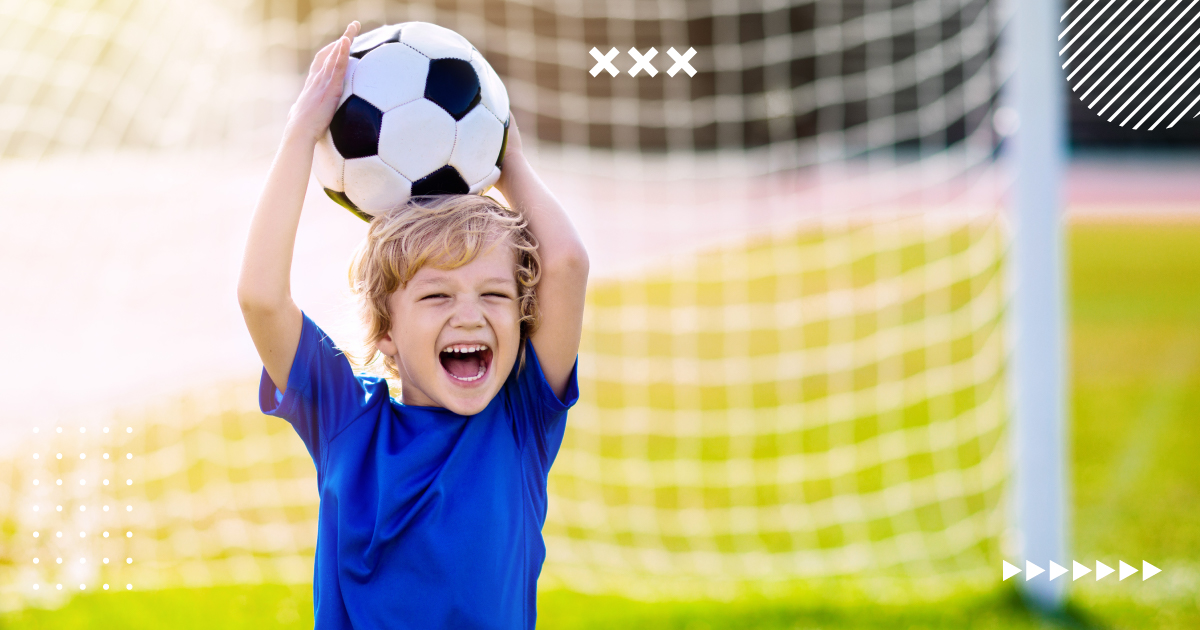Summer Sports Safety: Spotting Concussions and Staying Safe

Summer means sunshine, fun, and outdoor play, but it also brings a higher chance of head bumps and concussions. That’s why sports safety matters more than ever this time of year. Let’s talk about how to keep your family safe, spot warning signs, and know when to visit Physicians Premier for care.
Why summer sports mean a bump in concussion risk
Every year in the US, approximately 1.6 to 3.8 million concussions occur from sports and recreational activities. Popular summer sports, like baseball, soccer, biking, and swimming, come with their own head injury risks:
- Baseball/Softball: About 1 in 4 high school concussions happen while fielding a batted ball.
- Bicycling: Bikes account for around 80,000 ER visits for head injuries each year, and about 33% of nonfatal bike injuries involve the head.
- Soccer: High school soccer players get more concussions than baseball, basketball, or wrestling combined, and girls face similar risk levels as boys in football.
Helmets help, but they aren’t all-powerful
Wearing a helmet is essential – it can lower the risk of serious head injuries and skull fractures by up to 55% for biking. But it’s also good to remember that helmets don’t fully prevent concussions. They help absorb impact, but the risk is still there.
To get the most protection:
- Choose the right helmet for the sport and age
- Ensure it fits snugly and is properly adjusted
- Replace helmets after impacts or if damaged
Spotting the signs: what to look for
Concussions don’t always include a loss of consciousness – fewer than 10% do. Instead, watch for:
- Headache, dizziness, or nausea
- Feeling foggy, confused, or slowed down
- Mood changes, irritability, or sleep issues
If you spot any of these after a fall, hit, or crash, you could be looking at a concussion.
Why quick ER evaluation matters
Most concussions are mild, but not always. The only way to know for sure is with a proper medical check-up. Getting checked in the ER is important to:
- Rule out serious conditions like brain bleeding or skull fractures
- Monitor symptoms and reduce the risk of complications during recovery
- Get a personalized rest and return-to-activity plan
Encouraging smart play with summer gear
Summer is for fun, but playing smart matters too. Here’s what families can do:
- Make sure your child always wears the right helmet for the activity (bike, baseball, skating, etc.)
- Keep an eye on kids during sports and active play
- Teach safe habits like avoiding head-first slides and body collisions
- Encourage kids to speak up if they hit their head or feel “off.”
- Set the example. Wear your helmet and take care of it properly
According to the CDC, kids who play tackle football get 15 times more head impacts and 23 times more hard hits than those in flag football. Choosing non-contact options or sticking to safe play rules can make a big difference.
When to head to Physicians Premier
At Physicians Premier, our ER is open 24/7 across Texas to help families in your neighborhood. If your child experiences:
- A hard blow to the head or body
- Any concussion symptoms, especially worsening ones
- Confusion, vomiting, uneven pupils, or drowsiness
Please come straight to your nearest Physicians Premier facility. Our team is ready anytime, day or night, to do a full check, ensure safety, and guide recovery.
Tips for helping a loved one recover
- Rest with a plan
A fresh concussion typically benefits from short rest, then light school/work, slowly ramping up activity. - Track symptoms
Jot down signs like sleep issues, mood changes, memory, or balance issues. - Follow a return-to-activity plan
No play until a medical provider gives the green light. A second concussion before fully healing can lead to more serious and longer-lasting symptoms. - Get support
Teachers, coaches, and caregivers should be in the loop for a smooth return and school adjustments.
Enjoy summer fun while staying safe
Summer sports and outdoor play aren’t just about having fun. They help kids build confidence, make friends, and stay active. Whether it’s a pickup game at the park, a bike ride around the neighborhood, or a beach day with the family, these moments matter.
Making sports safety part of the routine – like wearing helmets, following simple rules, watching for signs of concussion, and knowing when to head to the ER – gives your family the freedom to enjoy it all with peace of mind.
Being aware of head safety doesn’t take away the fun. It protects the memories you’re making. If you’re ever unsure after a bump or fall, Physicians Premier is here 24/7 with expert emergency care.
Visit our website to learn more. Let’s make this summer one to remember – for all the right reasons.
Sources
“The Epidemiology of Sport-Related Concussion,” National Library of Medicine,
https://pmc.ncbi.nlm.nih.gov/articles/PMC2987636/
“Data on Sports and Recreation Activities,” Centers for Disease Control and Prevention,
https://www.cdc.gov/heads-up/data/index.html
“Bicycle Safety Statistics May Surprise You,” NSC,
https://www.nsc.org/safety-first/bicycle-safety-statistics-may-surprise-you
“Preventing Concussion,” Centers for Disease Control and Prevention,
https://www.cdc.gov/heads-up/prevention/index.html
“Swing, batter-batter, swing! Sports Helmets and Concussions,” Glacial Ridge Health System,
https://glacialridge.org/swing-batter-batter-swing-sports-helmets-and-concussions/
“Comparing Head Impacts in Youth Tackle and Flag Football,” Centers for Disease Control and Prevention, https://www.cdc.gov/traumatic-brain-injury/data-research/comparing-head-impacts/index.html
“Teen Newsletter: Concussions,” Centers for Disease Control and Prevention, https://www.cdc.gov/museum/education/newsletter/2022/aug/index.html


